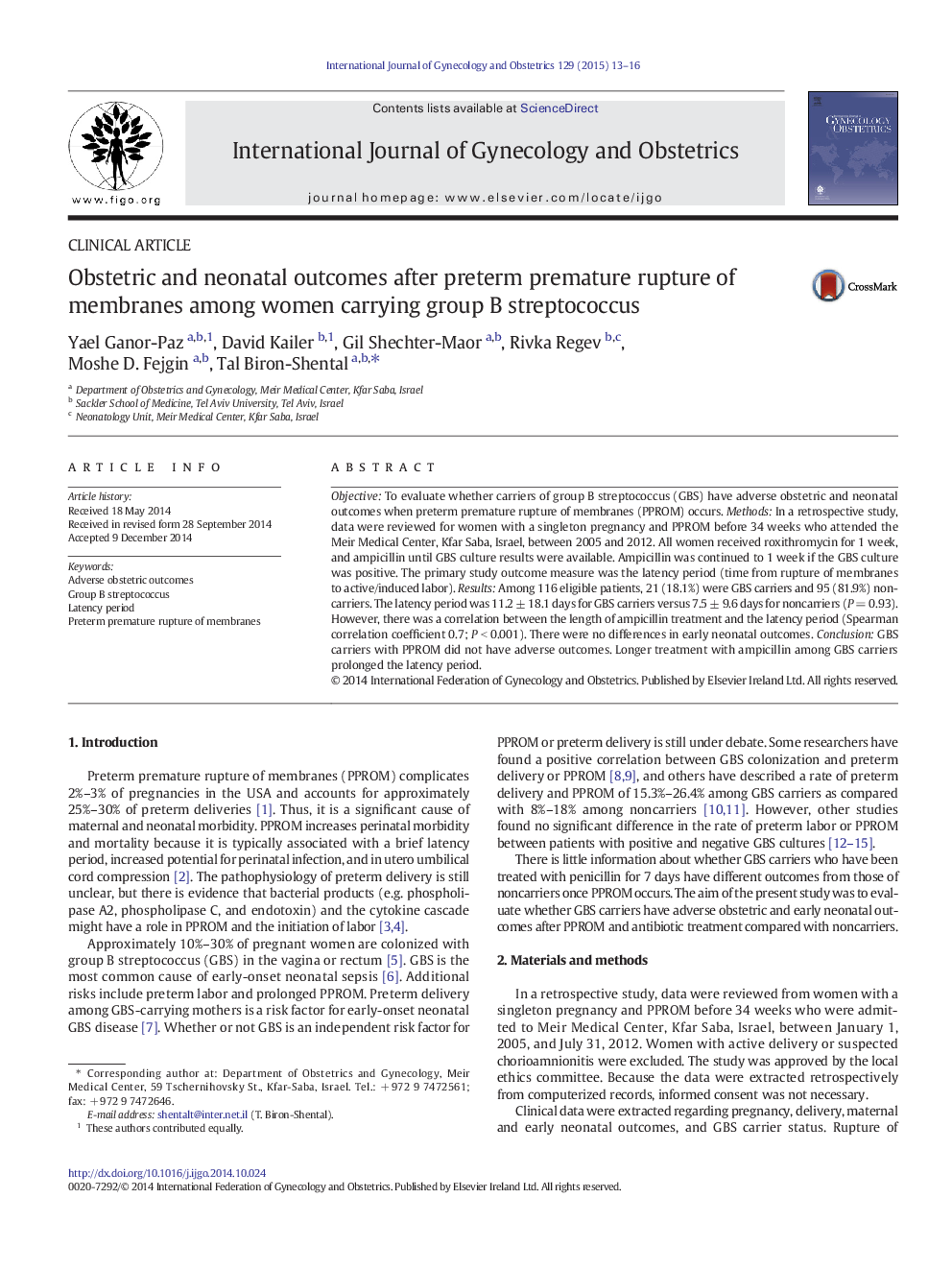| Article ID | Journal | Published Year | Pages | File Type |
|---|---|---|---|---|
| 3951766 | International Journal of Gynecology & Obstetrics | 2015 | 4 Pages |
ObjectiveTo evaluate whether carriers of group B streptococcus (GBS) have adverse obstetric and neonatal outcomes when preterm premature rupture of membranes (PPROM) occurs.MethodsIn a retrospective study, data were reviewed for women with a singleton pregnancy and PPROM before 34 weeks who attended the Meir Medical Center, Kfar Saba, Israel, between 2005 and 2012. All women received roxithromycin for 1 week, and ampicillin until GBS culture results were available. Ampicillin was continued to 1 week if the GBS culture was positive. The primary study outcome measure was the latency period (time from rupture of membranes to active/induced labor).ResultsAmong 116 eligible patients, 21 (18.1%) were GBS carriers and 95 (81.9%) noncarriers. The latency period was 11.2 ± 18.1 days for GBS carriers versus 7.5 ± 9.6 days for noncarriers (P = 0.93). However, there was a correlation between the length of ampicillin treatment and the latency period (Spearman correlation coefficient 0.7; P < 0.001). There were no differences in early neonatal outcomes.ConclusionGBS carriers with PPROM did not have adverse outcomes. Longer treatment with ampicillin among GBS carriers prolonged the latency period.
